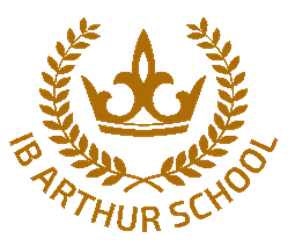The Early Years School at IB Arthur School follows the British Association for Early Childhood Development framework and the Cambridge EYS curriculum. The curriculum offers a top-level view of how children develop and learn.
This is the stage where students are trained to develop key competencies in reading, writing, and number concepts.We assess the EYS learners through continual observation during the school term.
Practitioners review learners’ progress and share observations with parents.
Parents meet practitioners twice per term (i.e. mid-term and end of term) to discuss the progress of the learners.
We believe that keeping classes small allows our teachers to truly understand how each student learns best.
The maximum class size is 16 students. Small class sizes allow us to get to know all of our families
and guardians well and develop close partnerships between school and home.
Each EYS class is managed by a trained teacher and a teaching assistant.
There are also nannies or carers to assist the young learners.
The Early Years School (EYS) curriculum is focused on five main areas of learning and development, ensuring a holistic approach to education.
Physical Literacy:
Provides opportunities for the children to be active and interactive, and to develop their coordination and movement. This programme explores the elements of creative movement, including; dance, rhythm, performance and body awareness. Each week we will work to develop confidence in artistic movement through positive physical activity experience. It develops fundamental movement skills like running, wheeling, throwing, catching and balance. It builds on the skills developed in early childhood into more complex movement patterns and sports skills.
Personal, Social, and Emotional Development (PSED):
Helps the learners develop a positive sense of themselves and others; form relationships and respect others, and learn how to manage their feelings.
Literacy Development:
Learners are encouraged to link sounds and letters and to begin to read and write. The children experience a rich language environment to develop their confidence and skills in expressing themselves and speaking and listening in a range of situations.
Numeracy Development:
Provides learners with opportunities to develop and improve their skills in counting, understanding, and using numbers, calculating simple addition and subtraction problems, and describing shapes, spaces and measures.
Understanding the World:
Guides learners to make sense of their physical world and their community through opportunities to explore, observe and find out about people, places, technology, and the environment.
We believe that keeping classes small allows our teachers to truly understand how each student learns best. The maximum class size is 16. Small class sizes allow us to get to know all of our families and guardians well and develop close partnerships between school and home. Each EYS class is managed by a trained teacher and a teaching assistant. There are also nannies or carers to assist the young learners.
| Time | Activity | Clarification |
|---|---|---|
| 7:00 am–7:30 am | Opening time | The deadline for arrival is 7:30 am. Learners arriving after 7:45 am should have breakfast at home. Any child arriving after 8:00 am will be turned away. |
| 7:30 am – 8:15 am | Breakfast | Breakfast is served at 7:30 am and ends at 8:15 am. |
| 8:15 am – 9:00 am | 1st Lesson | 45 minutes is allotted for the first lesson. |
| 9:00 am–09:45 am | Supervised learning | Teachers assist learners in going through their reading assignments and take tests to assess their level of understanding. |
| 10:00 am – 10:45 am | 2nd Lesson | 45 minutes is allotted for the second lesson. |
| 10:45 am – 11:30 am | Supervised learning | 45 minutes is allotted for supervised learning. |
| 11:30 am–12:30 pm | Lunch | Lunch is served at 11:30 am. |
| 12:30 pm – 13:30 pm | 3rd Lesson | 60 minutes is allotted for the third lesson. |
| 13:30 – 13:45 pm | Water Break | Learners go for their water break before the start of the next lesson. |
| 13:45 – 14:45 pm | 4th Lesson | 60 minutes is allotted for the fourth lesson. This period is preserved for PSED. |
| 14:45 – 14:50 pm | Snack Time | We serve snacks before learners depart home. Snacks include natural fruit juice without preservatives, biscuits, fruits, pancakes, and other pastries. We strictly discourage parents from providing their wards with food and snacks when coming to school. |
| 15:00 pm | Closing Time | Learners depart for home at 3:00 pm. Parents have until 4:30 pm to pick up their wards. |

